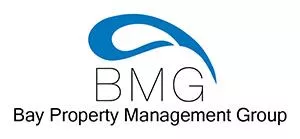How to Change Your HVAC Filters
What’s worse than a broken-down HVAC system? Whether you’re a landlord or a tenant, this can be a frustrating situation for all. Tenants have to deal with an uncomfortable environment, while landlords have potentially costly repairs to take care of. If you want to avoid an HVAC breakdown, the best solution is proper maintenance and care. However, it takes effort from both the tenant and landlord. Keep reading as we go over how to maintain and change an HVAC filter and what could happen if you don’t!
What Is an HVAC Filter?
Your HVAC system requires filters to trap dust, dirt, allergens, and other airborne debris. This is what keeps them from circulating throughout your home.
HVAC filters come in several shapes, sizes, and materials. That said, it’s important to use the right size for your HVAC system. Generally, you can buy these filters in bulk, which are disposable once used. So next, let’s review how you can measure your HVAC filter to find which one is right for your system.
How to Measure Your HVAC Filter
Most modern HVAC filters have the correct size printed on the side. However, if you have an older system or the size isn’t included in the filter, it’s crucial to measure it for the correct fit. Here are the steps to follow to find the correct filter size.
- Measure the length and width of your current filter
- Find the depth by measuring the thickness of the filter
- Put the numbers together by Length x Width x Depth
It’s important to note that manufacturers use measurements rounded up to the nearest inch, or “nominal size.” So, if your filter measures an actual size of 15.75 x 19.5 x 0.75″, it would equal 16 x 20 x 1″ nominal size.
Who’s Responsible for Changing the Filter?
HVAC maintenance requires cooperation from both tenants and landlords to ensure efficiency throughout any season. Here are some responsibilities for each party to maintain your home’s most expensive system.
Tenant Responsibilities for HVAC Maintenance
- Report any issues that arise with your rental’s thermostat.
- Contact your landlord or property manager immediately if there are any issues with the HVAC system.
- Check the filter monthly and clean or replace it as needed.
Landlord Responsibilities for HVAC Maintenance
- Educate your tenants on how to change or clean an HVAC filter.
- Remind tenants and follow up with them to ensure the filters are changed at the proper times.
- Work with local property management services in Northern Virginia to hire a licensed technician. A technician can perform seasonal maintenance and ensure your HVAC is working correctly.
Changing Your HVAC Filter in 6 Simple Steps
Changing the filter on an HVAC system in your rental can vary depending on the unit type. Before changing it, read the manufacturer’s manual for instructions and recommendations.
Keep in mind that these filters trap dirt, dust, and allergens. So, you may want to wear gloves and a dust mask to protect yourself. Additionally, have a bag ready to dispose of the old filter, so you’re not carrying it through your home.
6 Steps to Change Your HVAC Filter
- Turn the Power Off- Before removing the cover or HVAC filter, turn off the system’s power. Turning off the power can ensure you don’t touch any moving parts or “live” wires. Additionally, it’ll prevent the HVAC from sucking debris back from the old filter as you replace it.
- Take the Old Filter Out- Remove the outer cover if your system has one. Then, locate the old filter and slide it out of the slot that holds it in place.
- Inspect the Old Filter- Once you have the filter out, inspect it to see if it’s clogged. Depending on your filter type, it either needs to be cleaned or replaced. Many factors may cause your filter to clog, so it’s crucial to inspect it often and replace it as needed.
- Clean It- If your HVAC unit uses a reusable filter with a metal frame and washable material, remove it and clean it. After cleaning it, rinse it thoroughly and allow it to dry completely. On the other hand, if your filter is made with a cardboard and fiber mesh material, it’s disposable, so you can just throw it away.
- Replace the Filter- Next, you can replace the reusable filter or insert a new disposable filter. Look for an arrow on the filter to ensure you place it correctly. The arrow will depict how the air should flow – away from the air duct and toward the air handler mechanism.
- Dispose of the Used Filter- Old HVAC filters can contain contaminants, allergens, and irritants. To avoid any issues, place the old filter in a garbage bag and remove it from the rental.
How Often Should You Change Your HVAC Filter?
HVAC maintenance can be expensive, especially if it’s an emergency. Therefore, ensuring proper maintenance throughout the year is crucial. Generally, landlords should service an HVAC system once a year and hire a licensed technician to look over the unit.
When it comes to changing the filter, it depends on several factors. Generally, tenants are responsible for changing it when necessary. Here are some considerations for when to change your HVAC filter.
Change Your Filter Monthly If:
- The unit runs continuously for six months or all year round
- You have pets in the home since dander can build up
- Multiple residents in the home create more dust, dirt, and debris
- You’re smoking or vaping indoors
- The home has a fireplace that burns wood
- Construction takes place in or around the property
- Someone in the home has allergies or a respiratory condition
Change The Filter Immediately If:
- The filter is damaged upon inspection
- Your filter is damp, which can grow mold and circulate harmful contaminants
Generally, you’ll need to change your HVAC filter about every three months. However, depending on your system and the circumstances listed above, it can vary. Therefore, inspecting the filter regularly and changing it as needed is crucial.
What Happens if You Don’t Change the Filter?
By now, you know that changing your HVAC filter is crucial–but why? HVAC filters are responsible for preventing particles from entering and damaging sensitive machinery. Unfortunately, when the filter is dirty or clogged, it can cause the system to hinder your home’s airflow. In some cases, it could lead to no airflow at all.
Without full circulation, other parts of the system will need to overcompensate to control the climate of your rental property. That said, an overworked system can lead to failure and/or major repair expenses.
Additionally, if you don’t change your HVAC filter, it can bring harmful contaminants, like mold, into your home. Not only can mold be detrimental to your tenant’s health, but it’s not good for the HVAC system. Therefore, additional service from a qualified professional is sometimes necessary if there’s dampness or mold in your filter.
Keep Your HVAC Serviced with Property Management
Professional property management is beneficial for several reasons. One of the most significant benefits is consistent maintenance for all of your rental properties. After all, your investment properties are valuable assets–and Bay Property Management Group wants to help you keep it that way.
Our dedicated property managers can help with tenant relations, maintenance, and accounting needs to free up your valuable time. We offer services in Baltimore, Philadelphia, Northern Virginia, and Washington, DC. If you need comprehensive rental management services, contact BMG today.



